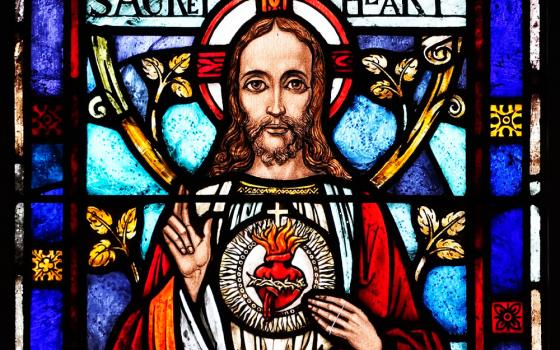A member of a delegation representing the Society of Catholic Journalists in Germany takes a photograph during an audience with Pope Francis at the Vatican Jan. 4, 2024. (CNS photo/Vatican Media)
Help "de-weaponize" the way language is used in the media by being respectful to others and fostering greater understanding and peace between people, Pope Francis told a group of Catholics journalists from Germany.
"How many conflicts today, instead of being extinguished by dialogue, are fueled by fake news or inflammatory statements spread through the media!" he said in a text handed to participants.
"Therefore it is even more important that you, steadfast in your Christian roots and the faith you live out daily, with hearts 'demilitarized' by the Gospel, support the disarmament of language," the pope wrote.
The pope gave his text to a delegation representing the Society of Catholic Journalists in Germany during a private audience at the Vatican Jan. 4. While he did not read his speech, the pope greeted every participant and shared a few words with each of them.
"Thank you, thank you for your work, which is not easy, the work of the journalist: it is a beautiful thing to communicate," he told the group before greeting them individually.
The association, which was celebrating its 75th anniversary, brings together Catholic professionals working in media -- either Catholic or secular outlets.
In his written speech, the pope said communication helps people be "members of one another" and live in communion "within an ever-expanding network of relationships. This is essential in the Church, where the bond with universality is developed and harmonized in a particular way through the ministry of the successor of Peter."
He praised the association's commitment to ecumenism, interreligious dialogue and the defense of peace, freedom and human dignity -- aims which are "as relevant as ever!"
There is an urgent and fundamental need, he wrote, for "fostering overtones of peace and understanding, building bridges, being willing to listen, and exercising respectful communication toward others and their reasons."
Advertisement
"Even the Church needs communication that is 'gentle and at the same time prophetic,' " he wrote.
Francis mentioned the Synodal Path the church in Germany has undertaken and the letter he wrote in 2019. In that letter he encouraged the "pilgrim people of God" in their search for a bold response to the present situation, but emphasized it must be guided by the Holy Spirit with patience and not a "search for immediate results that generate quick and immediate consequences but are ephemeral due to the lack of maturity or because they do not respond to the vocation to which we are called."
In the text he gave the German journalists, he said he wished that the letter were "better known, meditated upon and implemented, as it expresses two aspects that I consider fundamental in order not to go astray."
Care, he said, must be taken for the spiritual dimension of the church and its universal, Catholic dimension.
The spiritual dimension entails "the real and constant adaptation to the Gospel and not to the models of the world, rediscovering personal and community conversion through the Sacraments and prayer, docility to the Holy Spirit and not to the spirit of the times," he wrote.
The universal, Catholic dimension is fundamental so that the life of faith is not seen "as something relative only to one's own cultural and national sphere," he added.
"From this point of view, participation in the universal synodal process is good," he wrote.
"Catholic communicators have a valuable role to play in such situations: providing accurate information, they can contribute to clarifying misunderstandings and above all preventing them from arising, helping mutual understanding rather than opposition," the pope wrote.







